Filter by
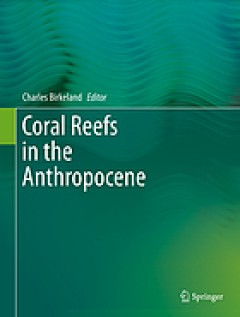
Coral Reefs in the Anthropocene
This volume investigates the effects of human activities on coral reefs, which provide important life-supporting systems to surrounding natural and human communities. It examines the self-reinforcing ecological, economic, and technological mechanisms that degrade coral reef ecosystems around the world. Topics include reefs and limestones in Earth history; the interactions between corals and the…
- Edition
- -
- ISBN/ISSN
- 9789401772495
- Collation
- -
- Series Title
- -
- Call Number
- 578.7789
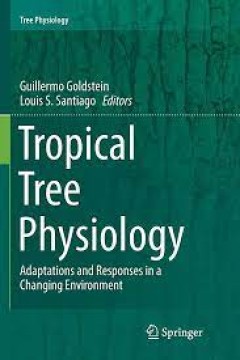
Tropical Tree Physiology Adaptations and Responses in a Changing Environment
This book presents the latest information on tropical tree physiology, making it a valuable research tool for a wide variety of researchers. It is also of general interest to ecologists (e.g. Ecological Society of America; > 3000 or 4000 members at annual meeting), physiologists (e.g. American Society of Plant Biologists; > 2,000 members at annual meeting), and tropical biologists (e.g. Associa…
- Edition
- -
- ISBN/ISSN
- 978-3-319-27422-5
- Collation
- -
- Series Title
- -
- Call Number
- -

The Functional Nucleus
This book gives an in-depth overview on nuclear structure and function. It clearly shows that the epigenome and the three-dimensional organization of the nucleus are not independent properties. The intimate relationship between the location and the epigenetic modifications of gene loci is highlighted. Finally, it shows that the complex three-dimensional organization of the nucleus is not just o…
- Edition
- 1
- ISBN/ISSN
- 978-3-319-38882-3
- Collation
- VI, 513, 8 b/w illustrations, 48 illustrations in colour
- Series Title
- -
- Call Number
- -
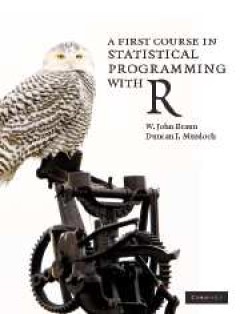
A First Course in Statistical Programming with R
This is the only introduction you'll need to start programming in R, the open-source language that is free to download, and lets you adapt the source code for your own requirements. Co-written by one of the R Core Development Team, and by an established R author, this book comes with real R code that complies with the standards of the language. Unlike other introductory books on the ground-brea…
- Edition
- -
- ISBN/ISSN
- 9780511803642
- Collation
- -
- Series Title
- -
- Call Number
- -
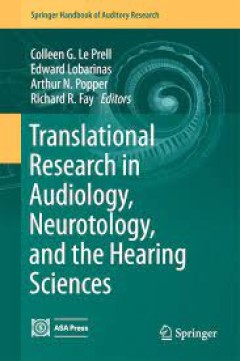
Translational Research in Audiology, Neurotology, and the Hearing Sciences
Translational Research is the interface between basic science and human clinical application, including the entire process from animal studies to human clinical trials (phases I, II, and III). Translational Research moves promising basic science results from the laboratory to bedside application. Yet, this transition is often the least-defined, least-understood part of the research process. Mos…
- Edition
- -
- ISBN/ISSN
- 978-3-319-40848-4
- Collation
- -
- Series Title
- -
- Call Number
- -
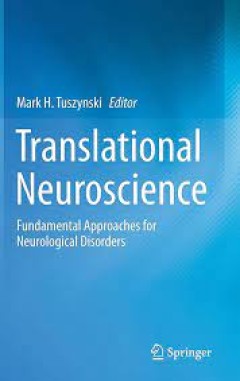
Translational Neuroscience Fundamental Approaches for Neurological Disorders
Translational Neuroscience offers a far-reaching and insightful series of perspectives on the effort to bring potentially revolutionary new classes of therapies to the clinic, thereby transforming the treatment of human nervous system disorders. Great advances in the fields of basic neuroscience, molecular biology, genomics, gene therapy, cell therapy, stem cell biology, information technology,…
- Edition
- -
- ISBN/ISSN
- 978-1-4899-7654-3
- Collation
- -
- Series Title
- -
- Call Number
- -
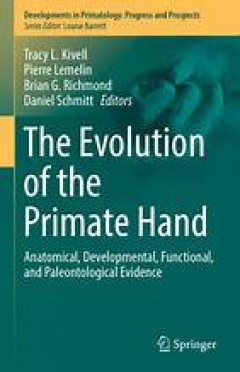
The Evolution of the Primate Hand
This book demonstrates how the primate hand combines both primitive and novel morphology, both general function with specialization, and both a remarkable degree of diversity within some clades and yet general similarity across many others. Across the chapters, different authors have addressed a variety of specific questions and provided their perspectives, but all explore the main themes descr…
- Edition
- 1
- ISBN/ISSN
- 978-1-4939-3646-5
- Collation
- XI, 589, 64 illustrations in colour
- Series Title
- Developments in Primatology: Progress and Prospects
- Call Number
- -
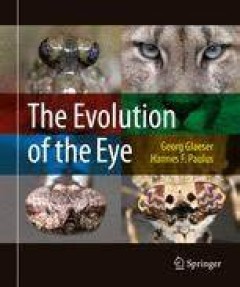
The Evolution of the Eye
With fascinating, spectacularly beautiful images, the book piques readers’ curiosity about the diversity of visual organs. This book is the result of a dual approach – scientific as well as aesthetic. The compelling images are accompanied by an easy-to-read, understandable text, aimed at both scientists and the educated public, and generally anyone interested in the beauty of nature. Thanks…
- Edition
- 1
- ISBN/ISSN
- 978-3-319-17476-1
- Collation
- XVI, 214, 297 illustrations in colour
- Series Title
- -
- Call Number
- -

Translational Biomedical Informatics A Precision Medicine Perspective
This book introduces readers to essential methods and applications in translational biomedical informatics, which include biomedical big data, cloud computing and algorithms for understanding omics data, imaging data, electronic health records and public health data. The storage, retrieval, mining and knowledge discovery of biomedical big data will be among the key challenges for future transla…
- Edition
- -
- ISBN/ISSN
- 978-981-10-1503-8
- Collation
- -
- Series Title
- -
- Call Number
- -
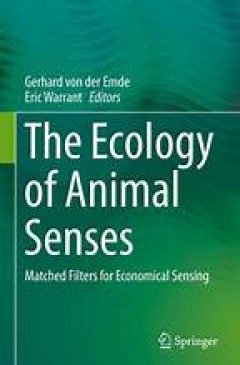
The Ecology of Animal Senses
The collection of chapters in this book present the concept of matched filters: response characteristics “matching” the characteristics of crucially important sensory inputs, which allows detection of vital sensory stimuli while sensory inputs not necessary for the survival of the animal tend to be filtered out, or sacrificed. The individual contributions discuss that the evolution of sensi…
- Edition
- 1
- ISBN/ISSN
- 978-3-319-25492-0
- Collation
- X, 269, 49 b/w illustrations, 46 illustrations in colour
- Series Title
- -
- Call Number
- -
 Computer Science, Information & General Works
Computer Science, Information & General Works  Philosophy & Psychology
Philosophy & Psychology  Religion
Religion  Social Sciences
Social Sciences  Language
Language  Pure Science
Pure Science  Applied Sciences
Applied Sciences  Art & Recreation
Art & Recreation  Literature
Literature  History & Geography
History & Geography